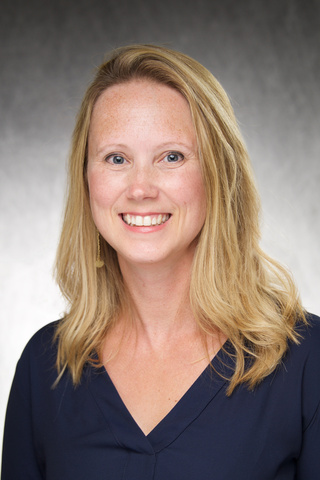By Alice Eberhart
Beth Walker, associate professor in the Department of Communication Sciences and Disorders, is leading a project focused on training graduate students in audiology and speech-language pathology (SLP) on how to work with and treat children with disabilities who come from multicultural backgrounds.

The project recently received a $1,249,517 grant from the U.S. Department of Education Office of Special Education and Rehabilitative Services.
Walker cited a strong sense of community and collaboration within the department, which accelerated progress and aided in getting the grant funded. Walker is co-PI on the grant with faculty members Philip Combiths, Anu Subramanian, Stephanie Fleckenstein, and Kristi Hendrickson.
This project will help address the shortage of trained professionals able to handle children with hearing and speech-related disabilities, particularly those who are multilingual.
Speech, language, and hearing impairments are some of the most common disability categories in education, Walker said. However, there is a shortage of qualified professionals who can fill the need in these categories—something the training grant aims to address.
“We hope to provide a training opportunity for individuals interested in working with children from culturally and linguistically diverse backgrounds that will lead to improvements in clinical practice,” Walker said.
The training program will emphasize cultural responsiveness, an area which Walker noted is lacking. Most audiologists and SLPs are monolingual, and many graduate programs lack coursework in the field.
“The percentage of U.S. children who are culturally or linguistically diverse is rising, with a 270% increase in the state of Iowa from 2002 to 2022,” said Walker, “Therefore, there is a huge need to ensure that our graduate students can meet the needs of children who are multilingual or racially or ethnically diverse.”
The new training for graduate students will include additional coursework in culturally diverse practices through the graduate certificate program in multilingualism and culturally responsive practice.
Additionally, students will complete specialized hands-on training at both in-house and external clinical placements. Students will also have access to national experts in audiology and SLP and diverse community partners.
Creating resources to support school-age children with disabilities is vital to the heart of the grant, Walker said.
“Studies have consistently shown that cultural, socioeconomic, and linguistic inequities create barriers to pediatric hearing healthcare and service delivery, which results in children who are deaf or hard of hearing not being able to achieve their full potential in terms of language and academic skills,” Walker said. “I want to see future audiologists and SLPs provide evidence-based services to children and be strong advocates at the policy level for their pediatric clients.”




